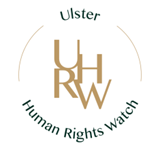UHRW criticism of legacy plans
Ulster Human Rights Watch (UHRW) Advocacy Manager, Axel Schmidt, said: “For legislation to work, it must place innocent victims of terrorism front and centre. The plight of people who suffered at the hands of bombers and gunmen must not be relegated or downplayed.
“Justice is the cornerstone of our democracy. The door to delivering that justice must not be closed or narrowed. Otherwise, good people who carry the burden of loss or lifelong disabilities will feel betrayed and abandoned.
“The State has a duty of care to the men and women who served in the Police and Army and any suggestion that they should be treated on a par with terrorists is abhorrent and wrong. There can be no equivalence.
“We have reservations about elements of the Bill such as the story-telling provisions and during its passage through Parliament, it would be our hope that the draft legislation will be considerably amended to prevent easy access to former terrorists to propagandise and re-set their heinous acts as somehow justified or legitimate.”
Click here to read Newsletter coverage
